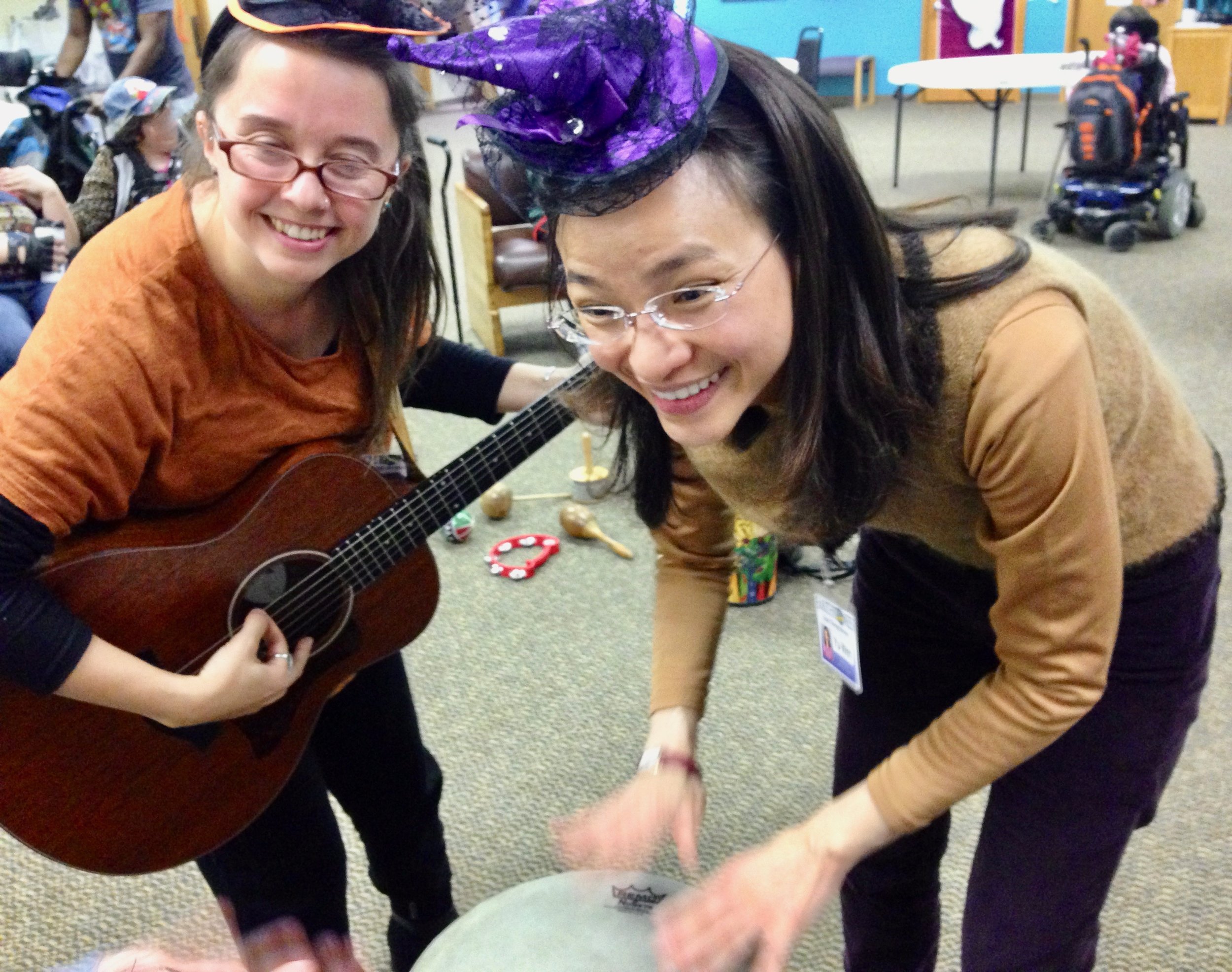the clinical, evidence-based use of music intervention to accomplish individualized goals within therapeutic relationships by a credentialed professional who has completed an approved music therapy program
-American Music Therapy Association
What is music therapy?
Music therapy is a clinical and evidence-based health profession that utilizes music as a therapeutic tool to support a variety of populations in achieving individualized goals through a therapeutic relationship with a credentialed professional. Effective use of music as a beneficial medium depends on the appropriate use by the therapist. The therapist must be a good musician as well as a good therapist, and must employ skill and knowledge of health problems in addition to tested theories of practice. Music is a powerful medium because it is a universal phenomenon experienced by all cultures, and its dynamic nature allows it to be flexibly used in myriad contexts. The effectiveness and generalization of skills in response to music therapy practice continues to be demonstrated through research.
The purpose of music therapy is to achieve goals and objectives that are specific to each individual client. These goals fall into several basic domains of human functioning, including physical/motor, cognitive, emotional, communication, psychosocial, and musical. Improvement of overall quality of life is another integral aim of the practice.
“a systematic process of intervention wherein the therapist helps the client to promote health, using music experiences and the relationships that develop through them as dynamic forces of change”
example goals
Who can benefit?
Music therapy services can be beneficial for individuals of all ages and abilities, including:
- Children, adolescents, adults, elders experiencing…
- Mental health needs
- Developmental and intellectual disabilities
- Dementia
- Substance abuse problems
- Neurological disorders
- Physical disabilities
- Acute and chronic pain
- Medical needs
and also with..
- Early intervention
- Trauma survivors
- Veterans
- Medical and surgical clients
- Parkinson's patients
- Hospice patients
Music therapy can address goals in many basic domains of human functioning, including:
- Promote wellness
- Manage stress and anxiety
- Decrease perception of pain
- Emotional expression and processing
- Enhance memory
- Improve communication
- Promote physical rehabilitation
- Improve motor skills
- Support cognition
- Enhance social success
- Improve treatment motivation and compliance
- Improve academic outcomes
- Increase self-esteem
- Improve coping skills
- Better quality of life
where do we work?
- Private Practice
- Community center
- Schools
- Medical Hospitals
- Correctional institutions
- Rehabilitation centers
- Mental health clinics
- Day care centers
- Agencies serving persons with developmental disabilities
- Senior centers or nursing homes
- Hospice and palliative care programs
- Outpatient clinics
- Halfway houses
- Drug and alcohol programs
Training
- Academic Course Work (music/psychology/music therapy)
- Clinical Internship (1200 hours)
- National Board Certification Exam (MT-BC credential)
- Licensure






